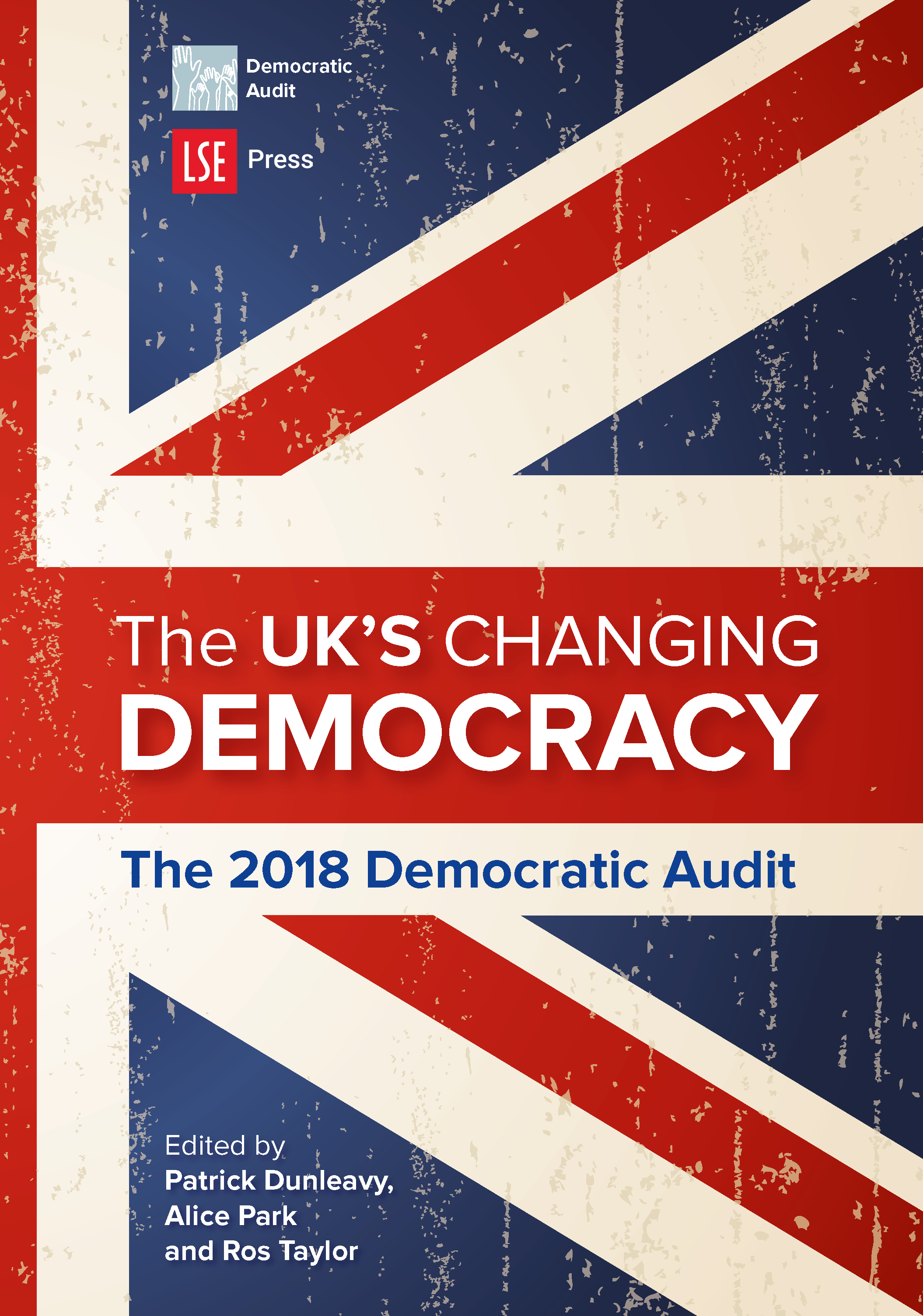The UK’s Changing Democracy: The 2018 Democratic Audit
Our latest book, The UK’s Changing Democracy: The 2018 Democratic Audit, is published by the new LSE Press. It is an open access book, freely available (in full) for any reader to download in all ebook formats. You can read articles from the book below.

The book presents a uniquely democratic perspective on all aspects of UK politics, at the centre in Westminster and Whitehall, and in all the devolved nations.
The 2016 referendum vote to leave the EU marked a turning point in the UK’s political system. In the previous two decades, the country had undergone a series of democratic reforms, during which it seemed to evolve into a more typical European liberal democracy. The establishment of a Supreme Court, adoption of the Human Rights Act, Scottish, Welsh and Northern Irish devolution, proportional electoral systems, executive mayors and the growth in multi-party competition all marked profound changes to the British political tradition.
Brexit may now bring some of these developments to a juddering halt. The UK’s previous ‘exceptionalism’ from European patterns looks certain to continue indefinitely. ‘Taking back control’ of regulations, trade, immigration and much more is the biggest change in UK governance for half a century. It has already produced enduring crises for the party system, Parliament and the core executive, with uniquely contested governance over critical issues, and a rapidly changing political landscape. Other recent trends are no less fast-moving, such as the revival of two-party dominance in England, the re-creation of some mass membership parties and the disruptive challenges of social media.
In this context, an in-depth assessment of the quality of the UK’s democracy is essential. Each of the 2018 Democratic Audit’s 37 short chapters starts with clear criteria for what democracy requires in that part of the nation’s political life and outlines key recent developments before a SWOT analysis (of strengths, weaknesses, opportunities and threats) crystallises the current situation. A small number of core issues are then explored in more depth.
Set against the global rise of debased semi-democracies, the book’s approach returns our focus firmly to the big issues around the quality and sustainability of the UK’s liberal democracy.
Articles from The UK’s Changing Democracy
Auditing the UK’s changing democracy
Auditing the UK’s democracy in 2018: Core UK governance institutions show sharply declining efficacy
Micro-institutions in liberal democracies: what they are and why they matter
Losing the ‘Europeanisation’ meta-narrative for modernising British democracy
How democratic are the UK’s electoral systems?
How democratic is the Westminster ‘plurality rule’ electoral system?
How democratic is the UK’s proportional electoral system: the single transferable vote (STV)?
Are UK elections conducted with integrity, with sufficient turnout?
How democratic are the channels for political participation?
How democratic are the UK’s political parties and party system?
How well does the UK’s media system support democratic politics and represent citizens’ interests?
Does citizen vigilance and social media extend or threaten democratic practices?
How democratic is the Westminster Parliament?
How effective are the Commons’ two committee systems at scrutinising government policy-making?
How accountable are the UK’s security and intelligence services to Parliament?
How democratic and effective is UK national government?
How democratic and effective are the UK’s core executive and government?
How democratic and effective are the UK’s civil service and public services management systems?



 Democratic Audit's core funding is provided by the Joseph Rowntree Charitable Trust. Additional funding is provided by the London School of Economics.
Democratic Audit's core funding is provided by the Joseph Rowntree Charitable Trust. Additional funding is provided by the London School of Economics.